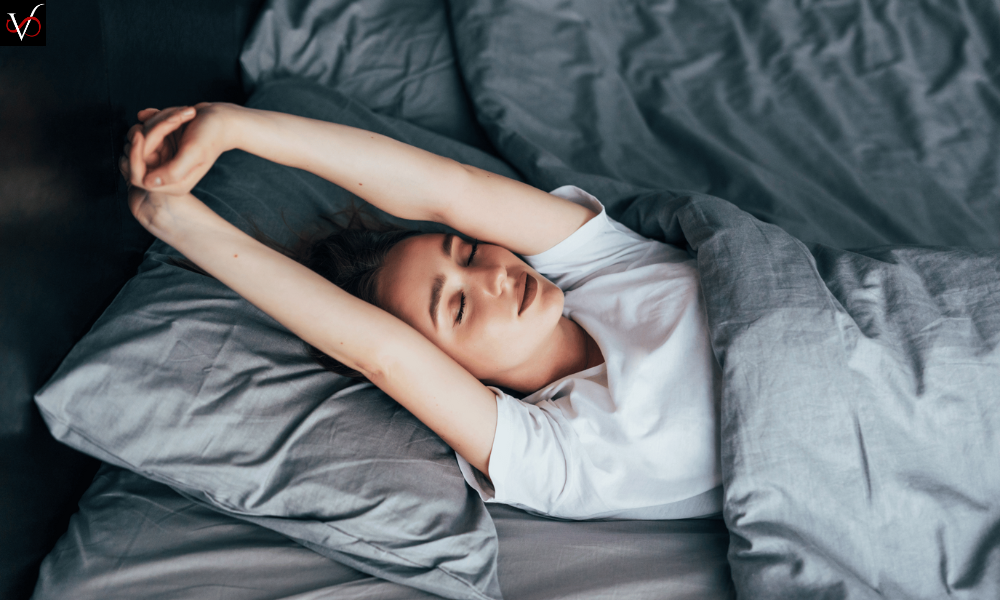If there were a pill that could boost your memory, regulate your mood, help you lose weight, reduce your risk of disease, and extend your life—it would be considered a miracle drug. But here’s the truth: that pill already exists. It’s called sleep. And the best part? It’s free.
Sleep is the most underrated force in human health. While people scramble for the latest supplement, diet plan, or productivity hack, they often ignore the one thing their body and mind are constantly begging for: consistent, high-quality rest. In today’s fast-paced world, sleep deprivation is worn like a badge of honor—but it’s quietly wrecking our bodies, minds, and ambitions.
Modern science has confirmed what ancient wisdom always knew—deep sleep heals, recharges, and rewires the body and brain. During sleep, your body undergoes crucial processes: tissue repair, immune strengthening, hormonal balancing, and memory consolidation. The brain literally cleans itself through the glymphatic system—a kind of overnight detox that clears away metabolic waste, including proteins linked to Alzheimer’s disease.
The myth that some people can thrive on 4 or 5 hours of sleep has been debunked over and over. According to Sleep Foundation, most adults require 7 to 9 hours of quality sleep to function optimally. Chronic lack of sleep contributes to insulin resistance, obesity, high blood pressure, mood disorders, reduced immunity, and even cancer risk.
So why are we sleeping worse than ever before?
One major culprit is blue light exposure. Phones, laptops, TVs, and LED bulbs emit a wavelength of light that tricks your brain into thinking it’s still daytime. This suppresses the release of melatonin, the hormone responsible for making you sleepy. Even 30 minutes of screen time before bed can delay sleep onset and reduce sleep quality.
Then there’s stress. High cortisol levels, overthinking, and mental overstimulation keep the nervous system on high alert—making deep, restorative sleep almost impossible. We fall asleep wired, we wake up exhausted. This creates a vicious cycle where sleep debt accumulates and mental clarity plummets.
But here’s the good news: you can fix your sleep. And you don’t need pills, expensive gadgets, or isolation tanks to do it. You need consistency, rhythm, and a few smart strategies rooted in circadian biology.
Start by respecting your natural clock. The body thrives on routine. Going to bed and waking up at the same time—even on weekends—can dramatically improve your sleep quality. This anchors your circadian rhythm and helps your body predict when to wind down or wake up.
Next, create a sleep sanctuary. Keep your bedroom cool (around 65°F / 18°C), dark, and quiet. Use blackout curtains, a white noise machine, and remove all glowing electronics from the room. Invest in breathable bedding and a supportive mattress—these are not luxuries, but tools for health.
Avoid caffeine after 2 p.m. and be mindful of alcohol. While alcohol may help you fall asleep, it disrupts REM sleep—the phase critical for emotional processing and memory. Similarly, eating large meals close to bedtime forces your body to focus on digestion instead of rest.
If you struggle to fall asleep, use a wind-down routine. This might include reading, stretching, journaling, or listening to calming music. Some people find that magnesium glycinate, L-theanine, or chamomile tea helps trigger the body’s relaxation response. Guided meditation or breathwork can also activate the parasympathetic nervous system, lowering cortisol and preparing your body for sleep.
Tracking your sleep can be insightful too. Devices like Oura Ring, Fitbit, or Whoop can give you feedback on sleep duration, heart rate variability, and how much time you spend in each sleep stage. While you don’t need a tracker to sleep well, they can help you build awareness and make data-informed tweaks.
One surprising fact? Daylight matters just as much as darkness. Getting morning sunlight exposure—ideally within an hour of waking—signals your brain that it’s daytime and helps reset your internal clock. This leads to better melatonin release at night and improves sleep onset. Nature, as it turns out, is your best sleep coach.
Movement during the day also plays a crucial role. Regular physical activity, even light walking or yoga, enhances sleep quality. But avoid intense workouts late at night—they can spike adrenaline and delay rest. Aim to finish workouts at least 2–3 hours before bedtime.
There’s a growing field of sleep biohacking that explores light therapy, binaural beats, weighted blankets, and even brainwave entrainment devices. While some of these tools are helpful, none of them work unless you also take care of the basics: timing, routine, and reducing stimulation.
Culturally, we must shift our mindset. Rest is not a reward; it’s a requirement. In the long run, rested people are more productive, more creative, and more emotionally stable. Sleep is not the enemy of hustle—it’s the fuel for it.
For parents, teaching children healthy sleep habits is foundational for behavior, learning, and development. For adults, deep sleep protects against burnout, anxiety, and even cravings. For older adults, consistent sleep helps maintain cognitive function, balance, and mood.
In fact, sleep could be the most accessible longevity tool we have. The famous “Blue Zones”—regions where people regularly live past 100—report consistent, deep sleep as part of their daily routine. It’s not just about how long you live, but how well you live.
If you’re constantly tired, irritable, or forgetful, look at your sleep. If your cravings, weight, or productivity are off, start with sleep. If your immune system feels sluggish or your mood feels flat, don’t reach for a pill—reach for a pillow.
The simplest way to begin? Create a “sleep bubble.” This is the 60–90 minutes before bed when you put your body into a state of intentional calm. Dim the lights. Turn off email. Let your mind exhale. It sounds small, but it’s powerful.
When you wake up feeling rested, everything changes. Focus sharpens. Moods improve. Goals feel more reachable. The world feels less heavy. You’re not just existing—you’re thriving.
Sleep isn’t just something your body does. It’s something your body craves to keep you alive, alert, and aligned. Fixing your sleep may not look sexy or glamorous, but it may be the most profound upgrade you can give your health in 2025 and beyond.





Leave a Reply